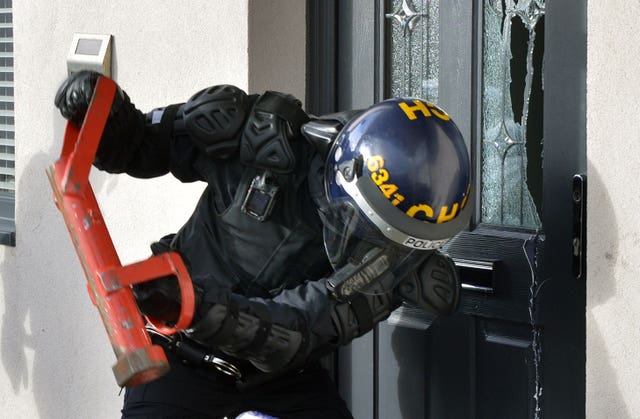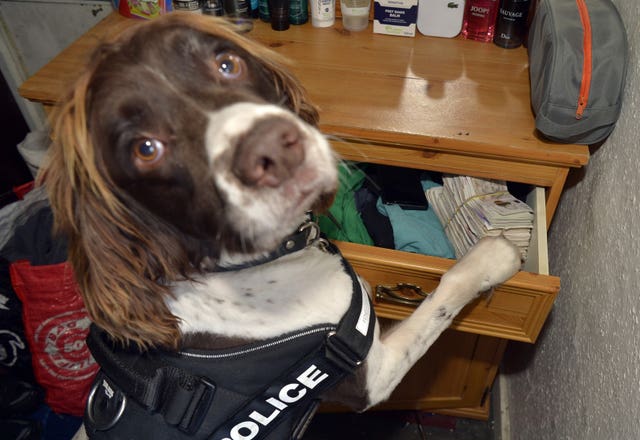Hundreds arrested as police target ‘county lines’ drugs gangs
The operations also identified 140 children linked to the drugs trade.

Police have made more than 650 arrests and seized cash and drugs worth more than £3 million during a crackdown on “county lines” gangs.
More than 100 weapons were found, including firearms, and 139 “deal lines” – linked to unique phone numbers dialled by users to buy drugs – were shut down between last November and March, according to the figures released by the Home Office.
The operations, which identified 140 children linked to the drugs trade, were carried out by the British Transport Police (BTP), the Metropolitan Police, Merseyside Police and West Midlands Police as part of an effort to smash organised crime groups.

The Home Office said the campaign was funded by £5 million from the Government’s £25 million package to tackle “county lines” – a gang model which sees young and vulnerable people used as couriers to move drugs and cash between cities and smaller towns.
Home Secretary Priti Patel said: “I am determined to roll up county lines drugs gangs and stop them from terrorising our towns and exploiting our children.
“I have seen first-hand the important work the police are doing to tackle county lines, and these impressive results show just how much of an impact our investment is having.”
BTP has introduced specialist drug detection dogs to work within their county lines taskforce, led by Detective Superintendent Gareth Williams.

He said: “Our taskforce works nationally, targeting the train routes used by gangs to transport drugs and cash.
“We carry out operations daily and without warning, securing hundreds of arrests within a few short months.”
The National Crime Agency’s most recent strategic assessment of serious and organised crime identified more than 3,000 unique deal line numbers last year, of which 800 to 1,100 were estimated to be active during a given month.
Nikki Holland, NCA director of investigations and joint national county lines lead, said: “Protecting young and vulnerable people from county lines networks remains a priority for law enforcement, and our work continues despite the challenging situation the UK is facing with the Covid-19 pandemic.”





